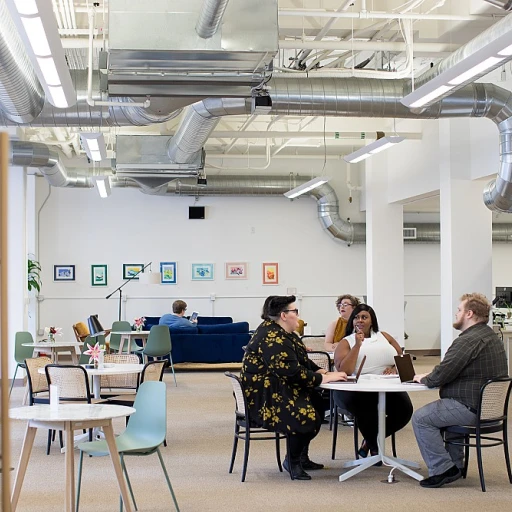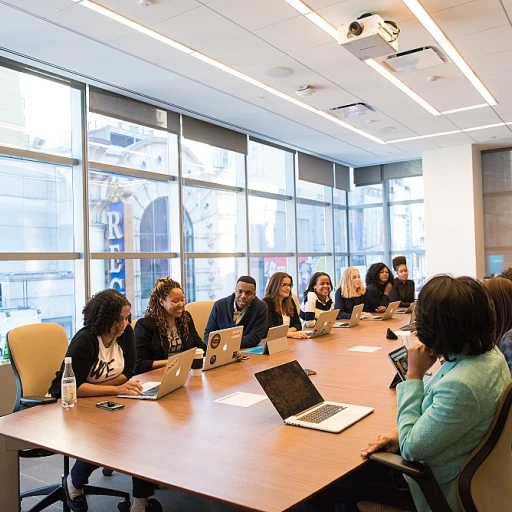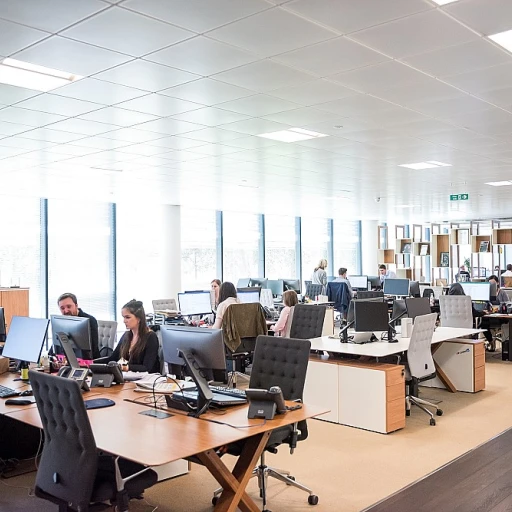-large-teaser.webp)
Understanding Adaptive Thinking Skills
The Essence of Adaptive Thinking
Adaptive thinking is the cornerstone of effective change management. It's the ability to adjust one's thinking process in response to new, unforeseen, or dynamic situations. This skill entails both cognitive flexibility and continuous learning, enabling individuals to effectively navigate through complexities. Adaptive thinkers showcase a remarkable level of problem-solving prowess. These thinkers are adept at modifying their cognitive approaches to address various challenges. Whether it's through critical thinking or creative thinking, adaptability is key. Students and professionals alike benefit from enhancing their adaptive skills, fostering a growth mindset that aids in decision-making processes and solving complex problems. As the world continues to evolve at a rapid pace, the ability to adapt and learn becomes crucial. Adaptive thinkers thrive in changing environments because they are not just reactive, but proactive in their approach. They possess the emotional intelligence needed to tackle not only problems but also to understand the emotions and reactions of others involved in the change process. Understanding the role of adaptive thinking in developing robust change management strategies is essential. In today's fast-paced world, future trends in adaptive thinking and change management will focus more on cultivating these skills early on, encouraging students and professionals to become lifelong learners. This continual development ensures that they remain ahead in problem-solving and decision-making capabilities. For those seeking to delve deeper into the practical applications and intersection of adaptive thinking and agile practices, "navigating agile product lifecycle management in change management" offers a comprehensive exploration.The Role of Adaptive Thinking in Change Management
The Importance of Adaptive Thinking in Overcoming Change Challenges
Adaptive thinking plays a crucial role in navigating the complexities of change management. It enables individuals and organizations to address challenges effectively and make informed decisions in rapidly changing environments. This skill is not merely about flexibility; it encompasses a range of proficiencies, including problem-solving, critical analysis, and emotional intelligence. When faced with unpredictable situations, those with strong adaptive thinking skills can pivot their strategies to meet new demands.
For instance, an adaptive thinker will utilize cognitive flexibility to replace outdated methodologies with innovative solutions, ensuring that the transition to change is smooth and efficient. This approach is vital when dealing with unexpected obstacles, as it allows for seamless problem-solving while encouraging continuous learning.
Moreover, adaptive thinkers excel in real-time decision-making. By leveraging their ability to analyze current problems objectively, they can make changes that benefit the overall organizational structure. This propensity for flexible thinking is particularly beneficial in environments where change is not only frequent but also necessary for growth.
In the context of embracing lean principles in change management, adopting adaptive thinking helps organizations streamline processes and eliminate redundancies, paving the way for more efficient and productive workflows.
Ultimately, the role of adaptive thinking in change management is to facilitate resilience and innovation, thereby equipping leaders and teams with the tools needed to embrace change and strive for continuous improvement.
Developing Adaptive Thinking Skills
Nurturing Flexible Thinking Skills
Developing adaptive thinking involves nurturing a set of cognitive skills that students and professionals can leverage to efficiently navigate change. Among these skills, flexible thinking stands out, encouraging individuals to adjust their approach when confronted with unexpected situations or complex problems. This ability to adapt and shift perspectives is at the heart of effective change management.- Cognitive Flexibility: In a fast-paced world, cognitive flexibility allows thinkers to adapt strategies based on evolving circumstances. It's the cornerstone of adaptive skills and can dramatically improve problem-solving capabilities.
- Creative Thinking and Growth Mindset: Encouraging a growth mindset means valuing continuous learning and embracing challenges as opportunities. Combined with creative thinking, this mindset supports a proactive approach to change, enabling adaptive thinkers to devise novel solutions.
- Role Playing and Simulation: Using role playing as a learning tool can help students develop adaptability by simulating real-life challenges. This hands-on approach engages learners in decision making, enhancing their emotional intelligence and fostering critical thinking under pressure.
- Continuous Learning: Adaptive thinkers are ardent learners who never cease to expand their knowledge base. They actively seek information and skills that can aid in problem-solving, evaluating each change initiative and its impact critically.
Challenges in Cultivating Adaptive Thinking
Overcoming Barriers to Flexible Thinking
Developing adaptive thinking skills is essential for effective change management, yet it comes with its own set of hurdles. Adaptive thinkers often face challenges such as fixed mindsets, limited experience, and lack of exposure to diverse scenarios. Here, we will delve into some common obstacles and how to address them.- Fixed Mindsets: One of the first hurdles is overcoming a fixed mindset, which can impede cognitive flexibility. To cultivate a growth mindset, individuals need to embrace continuous learning and accept that failure is a part of the learning process. Creative thinking can be enhanced by encouraging open dialogue and promoting a culture that values diverse perspectives.
- Limited Experience: Exposure to a wide range of situations is crucial for developing decision-making skills. Adaptive thinkers must be actively engaged in problem-solving exercises, role-playing, and real-world applications to improve their adaptability. This not only expands their cognitive toolkit but also builds confidence in their ability to manage change effectively.
- Lack of Emotional Intelligence: Emotional intelligence plays a pivotal role in problem-solving and effective communication. For adaptive skills to flourish, individuals must work on developing empathy and resilience, enabling them to navigate complex emotional scenarios. Emotional intelligence directly impacts decision-making, making it an indispensable ally in rapidly changing environments.
Case Studies: Adaptive Thinking in Action
Real-World Applications of Adaptive Thinking
Adaptive thinking is not just a theoretical concept; it plays a crucial role in real-world change management scenarios. Let's explore some practical examples where adaptive thinking has been effectively applied to navigate complex challenges.
Educational Institutions Embracing Change
In educational settings, adaptive thinking helps students and educators alike to cope with the rapidly changing landscape of learning. Schools that have integrated technology into their curriculum have seen significant improvements in student engagement and learning outcomes. By fostering a growth mindset and encouraging continuous learning, these institutions have successfully adapted to new educational paradigms.
Corporate Sector: Navigating Market Shifts
Companies in the corporate sector often face the challenge of adapting to market shifts. A notable example is a tech company that successfully pivoted its business model in response to changing consumer demands. By leveraging critical thinking and problem-solving skills, the company was able to innovate and maintain its competitive edge. This case highlights the importance of cognitive flexibility and creative thinking in making informed decisions during times of change.
Healthcare: Adapting to Technological Advancements
The healthcare industry is another area where adaptive thinking is essential. With the rapid advancement of medical technology, healthcare providers must continuously adapt to new tools and procedures. By developing adaptive skills and fostering emotional intelligence, healthcare professionals can improve patient care and outcomes. This adaptability ensures that they remain effective in their roles, even as the industry evolves.
Government and Public Sector: Policy Adaptation
In the public sector, adaptive thinking is crucial for policy adaptation and implementation. Governments often face complex problems that require innovative solutions. By employing adaptive thinkers, public institutions can effectively address societal challenges and implement policies that reflect the changing needs of the population. This approach not only enhances problem-solving capabilities but also ensures that policies remain relevant over time.
Lessons Learned from Adaptive Thinking in Action
These case studies demonstrate that adaptive thinking is a valuable asset across various sectors. By cultivating adaptive thinking skills, individuals and organizations can better navigate the complexities of change. Whether it's through role-playing exercises, continuous learning, or fostering a culture of adaptability, the ability to think adaptively is a critical component of successful change management.













